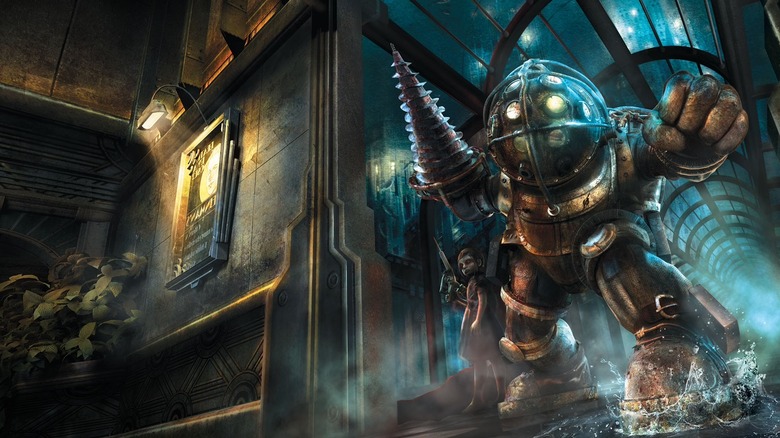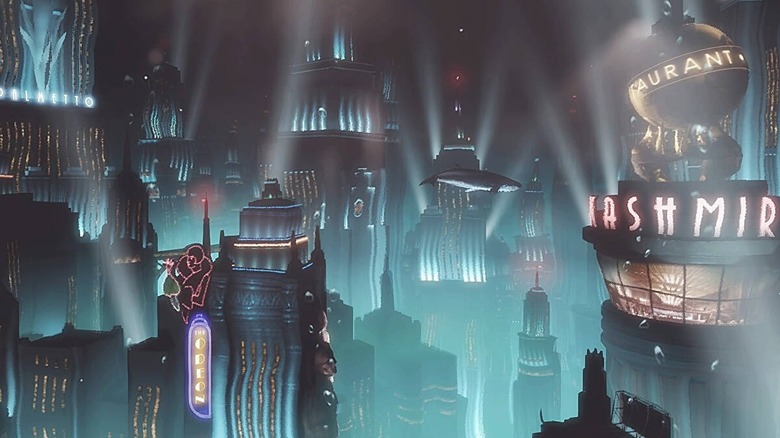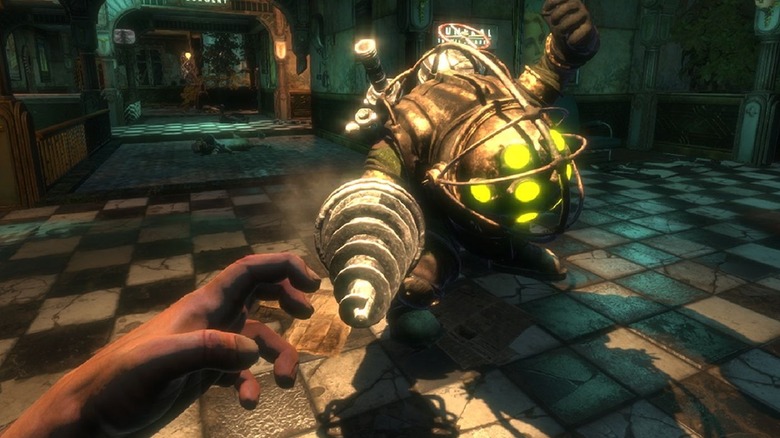BioShock Director Francis Lawrence Explains What Drew Him To The Adaptation: 'It's One Of The Best Games Ever Created'
Have you heard the tale of the video game curse? Every video game adaptation Hollywood greenlights always seems to be fated for failure in some way — a box office bomb, a flurry of unfortunate adaptational choices, or even worse, a fade into cultural obscurity.
Some say the curse is starting to break with the success of the live-action "Sonic the Hedgehog" films and "Detective Pikachu," the latter of which brought the colorful world of Pokémon to life in a family-friendly blockbuster format. Both films made an impressive amount of money and are generally liked by their target audience as well as critics, which means they're amongst the first of their kind. "The Last of Us," one of the most critically acclaimed games of all time, is now a highly anticipated HBO series premiering next January, and it aims to be "Game of Thrones"-level big. We're even getting an animated "Super Mario" movie in April.
So, have we reached a new era of video game adaptation? Perhaps it's too early to make that call, but Netflix is getting ready to join the club with its own adaptation of one of gaming's most beloved titles, 2007's "BioShock."
Famously, Gore Verbinski ("Pirates of the Caribbean," "A Cure for Wellness") had a full screenplay for a "BioShock" film, which he struggled to get out of production hell. This time, director Francis Lawrence ("Constantine," "The Hunger Games") is attached to the newest iteration of the film, and though we have very few details about the film's current pre-production, Lawrence spoke to Collider about his ambitions with the project.
In the interview, Lawrence claims that he was drawn to the project because he believes "BioShock" is "one of the best games ever created."
A fully fledged, political story
"[It is also] one of the most visually unique games ever created," Lawrence told Collider. "The other thing, and one of the things that always appeals to me, is it is very thematic. There's real ideas and philosophies underneath the game property, and it's really, really, really thought out."
The original "BioShock" was a notable game for many reasons, but mostly because, in a blossoming medium that often abandons narrative, it told a fully-fledged political story. Director Ken Levine made a critique of Ayn Rand's "Atlas Shrugged," through a game set in an isolated underwater city of Rapture, which quickly fell to apocalyptic ruin due to the discovery and abuse of ADAM, a gene-altering drug that grants the user supernatural abilities.
"A lot of games may have a great world of some kind, or they may have a great lead character, or they may tee you up for great set-pieces," Lawrence continued. "But they don't really have the ideas, they don't have the kind of weight and the gravitas that 'BioShock' does. The sort of combo of real ideas and philosophies mixed with the unbelievable aesthetic of it."
Lawrence's emphasis on the ideology of the game and how that informs its aesthetics is promising. If you're going to knock a "BioShock" movie out of the park, it needs to preserve the anti-capitalist themes and values that the original game was praised for. This is a universe with a villain modeled after Walt Disney — "BioShock" is as much about the corrupting nature of American individualism and what kind of evil a world without morality would breed as it is about the shooting and looting.
Francis Lawrence clearly loves BioShock
"BioShock" takes place in an alternate history, where Rapture was created in the mid-1940s and fell to chaos during a civil war on New Year's Eve 1959. As the city was built completely underwater, the citizens down there have become disfigured and hostile due to their addictions to a special substance known as ADAM and their lack of easy escape to the surface world. They are perpetually trapped in a horrific, retro nightmare. It makes the atmosphere of "BioShock" intoxicating; "How Much is That Doggie in the Window?" blasting from warped vinyl as the player uses their lightning powers to navigate a ruined world. It's uniquely genre-bending and post-modern in a way Lawrence definitely seems to admire.
"One of the other things that I love, love, love is that sort of strange mashup of genre," he continued, "the idea that you have what feels like a period piece, mixed with body horror, mixed with sci-fi. It's one of those great mashups, and I think it can be really unique and really beautiful and really entertaining."
We're confident Lawrence loves "BioShock," and that's great! There's been a long history of failed video game adaptations born from the fact that the people behind the camera or financing the film were largely out of touch on what makes these games special or why they grab audiences. In this interview, Lawrence perfectly describes everything that makes the original game such a staple of the medium. However, that enthusiasm could also be dangerous and lead to fatal over-ambition, like in Duncan Jones' "Warcraft" film.
As of now, we don't have many details on when "BioShock" will be streaming on our TVs, but we wish Lawrence all the luck. If we're going to see a new era of video game adaptations, we'd like to see "BioShock" come out on top.


